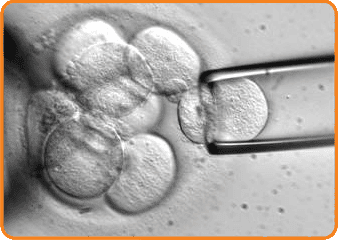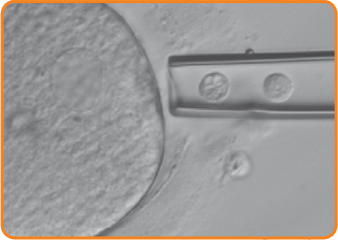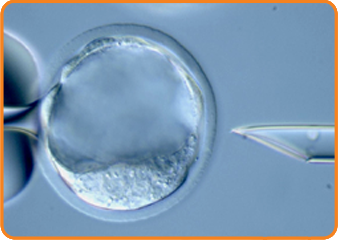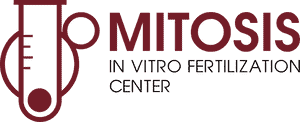Early Detection Diagnosis for Genetic Abnormalities and Embryo Protection
Preimplantation Diagnosis (PGD) is a technique that can detect genetic abnormalities, on genes or chromosomes, on embryos before implantation. It is always performed in conjunction with IVF cycle.
The following steps are taken:
- Women are treated to cause ovulation,
- the eggs are collected on time,
- the eggs are fertilized,
- preimplantation genetic diagnosis in embryos and
- embryo transfer of healthy embryos take place.



Testing: To test if the fetus is a carrier of a gene disease or aneuploidy, 1 or 2 cells are removed from it. This process is known as “blastomere biopsy”. The biopsy is usually performed on the third day after egg retrieval and fertilization, at the stage of 8 cells. A biopsy may be done at an earlier stage (“polar body biopsy”) and in later stage (“blastocyst biopsy”). During the biopsy a small hole is opened on the shell of the embryo. The tunneling can be done either mechanically or by using acid solution or laser. Then, the cells are stabilized and the diagnostic test follows.
Diagnosis: There are two types of diagnostic techniques: PCR (Polymerase Chain Reaction) and the FISH (In Situ Hybridization Fluorescent).
- PCR detects errors, birth defects in a specific gene (eg beta-thalassemia gene).
- FISH identifies the number or errors in the form of chromosomes.
Immediately after the diagnosis, only the healthy embryos that survived and developed after biopsy are transferred into the uterus. Preimplantation diagnosis is a technique that applies:
- to infertile couples following IVF cycle due to infertility,
- to fertile couples, who can conceive, but have a high risk of passing on genetic disease in embryos (e.g. thalassemia),
- to other couples who had repeated implantation failures or recurrent miscarriages,
- to older women (the greater the age of the woman trying to conceive, the more likely it is to show genetic abnormalities in the fetus).
